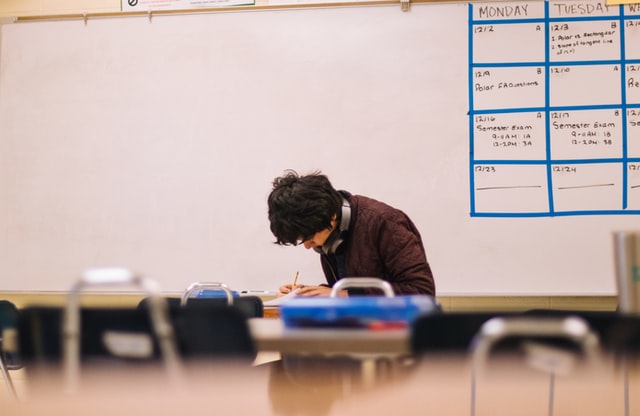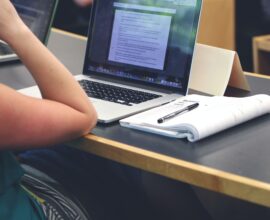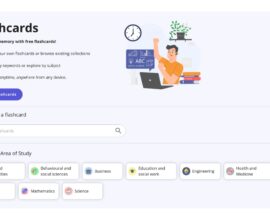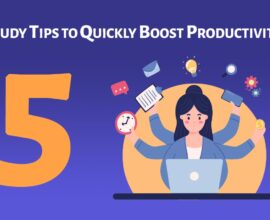How To Be A Top Student?
You know the old saying: work smarter, not harder. When you’re studying, it makes sense to optimise your precious time and productivity to help you get the most out of each study session, right?
We’ve compiled a list of killer study tips to take you to the top of the class without all the hassle and stress. Let’s take a look at some practical tips and tricks to help you with your homework, exams, and how to study and get good marks in school.
What Do Top Students Do Differently?
You’ve got to get to the top of your school with better grades somehow, right? Fortunately, we know a few tips to help you get to the top of your class. High performers have some things in common, including asking questions, solving problems, and checking over mistakes. Check out our top tips for top students, and you’ll be getting the most out of your grades in no time!
Questions Get Good Grades
Remember when you were a kid, and because you were a kid, you were curious about everything? You probably asked loads of questions! Hopefully, someone answered them, no matter how silly they seemed.
When you’re in a lecture or tutorial, always try to ask at least one question. Asking questions about the topic is the best way to engage yourself, even if you feel like you already understand.
Clarify your understanding and you’ll feel even better on exam day, which means you’ll have better grades.
Working Backwards
This one works well for certain subjects in STEM, like if you have a math exam. If you’ve got a problem that is already solved, feel free to try and reverse-engineer it!
It took most of human history to invent the automobile, and only a few decades later to land on the Moon. Take the solved problem and see if you can work out how they worked out the right answer – it’s like a final exam with training wheels!
Practice Before Your Final Exams
You know that old saying that practice makes perfect? It’s not completely true. What we should say is “perfect practice makes better”. Even practicing multiple-choice questions is a good way to prepare for exams.
Since most exams typically take place at the end of the term or year, they can often feel like a struggle simply because we’re not used to taking them. All the best students practise their exam questions before test day.
Doing practice papers means you can simulate exam conditions and feel better prepared when the big day comes.
Learn From Your Mistakes
When you get your marks back, try and get a hold of your exam paper. If you scored 100%, great! But in the likely event that you didn’t, every incorrect answer is an opportunity for you to learn.
Solving exam questions that you didn’t get right the first time is a great way to pinpoint shortfalls in your understanding. Some people think exams are done when you leave the hall, but you can do some of your best learning just by working out where you went wrong on a test. It’s OK to make mistakes and learn from them, so you don’t make them again in future examinations.
Study Sprints
When it comes to studying, many of us think we need to be Cliff Young.
Cliff Young was an Australian potato farmer who, at the age of 61, won the Sydney to Melbourne ultramarathon. It was a distance of 875 kilometres. He won by adopting a slow, energy-preserving pace, and continuing to run while other competitors slept.
Instead, be like Cathy Freeman, who won gold at the Sydney Olympics by sprinting. You still get the medal, but it takes less time and energy. Work smarter, right? Study in short bursts of 30 to 40 minutes at a time and it slowly adds up. Thirty minutes of focused study per day over six days – with one day for rest – equals three hours over a week. After a month, that’s twelve hours. No more all-night study binges and marathons for you!
Prioritise Your Sleep Schedule
Easier said than done, we know, but according to the big brains over at Forbes, getting your eight hours means better marks. Those who sleep well at night are significantly more likely to be scoring higher on their exams. A good night’s sleep means good marks. You’ll feel better, retain more, understand more, and stress less. What’s not to love about that?
Start getting good sleep every night, and you’ll never underestimate the power of a good night’s sleep again. Plus, you won’t fall asleep in class anymore! A quick tip: you’ll fall asleep better if you stay active during the day.
Don’t Compare
Mark Twain famously called comparison “the death of joy”. In high school, there was always a kid boasting about how little he was sleeping, how he was living on a diet of Red Bull and exam anxiety, and how much he’d done to prepare. Hearing how other people studied is a great way to feel inadequate, especially if they’re being a little elastic with the truth.
Don’t compare your study habits to anyone but yourself. Stay focused on your study plan. As long as you’re improving, you’ll be OK.
Manage Your Study Space
Where do you study? Do you browse the internet from the comfort of your bed or do you have a dedicated space? You want somewhere quiet and spacious, with internet access and plenty of natural light.
It’s important for you to have an area that you use only for homework. This trains your brain to associate sitting there with working, not playing, and will help eliminate distraction. Speaking of which…
Eliminate Distractions
No matter how good you think you are at multitasking, stop studying in front of the TV. That’s right, you are virtually guaranteed to learn less and work more if you’re trying to do too much at once. You need to stay focused on the task at hand. Taking a break to scroll social media is not the answer.
To paraphrase the wise words of Ron Swanson, commit 100% to your goal. If it’s study time, turn off the TV. Put your phone away. TikTok will still be there in forty minutes when it’s time to take a break, so make sure to prioritise only your study for the time being.
Claim Your Space
Do you have a tidy desk with plenty of light or a cluttered room where you can’t find the pen you need to take notes? It’s easier to keep track of your work when things are where they are supposed to be.
Study in a quiet place to prepare for your exam. Take a couple of minutes before each study session to ensure your study space is ready for action. It won’t take long, and it will help you to mentally prepare for study time.
Brain Food
Your mind is like a car. It needs fuel to run. If you put corn whiskey in your car instead of premium petrol, it will work for a while before it sputters and dies on the road.
The same goes for junk food. It’s not a good idea.
Studies show the best thing you can do for your diet is seven simple words. Eat food, mostly plants, not too much. You’ll feel better, your mind will be sharper, and your memory will improve.
Take Notes So You Have Up To Date Information
Do yourself a favour and take notes, especially if you’re looking at new material. You don’t have to write comprehensive, all-encompassing lecture notes, but be sure to take notes when you’re learning. You want thorough notes that you can understand later when you use them as study materials.
Even flashcards with keywords on them are helpful!
Take Study Breaks
If you start to feel lazy, you aren’t keeping track of your work, or you’re not retaining any information, one of our top tips is to take a break. You need rest sometimes! Powering through a lull is not the answer.
Take a study break for five minutes, move around, get some water, and leave your study space. Five minutes – ten at the most – is all you need to get it right.
Try Teaching
According to Edgar Dale, we remember only 10% of what we read, but about 95% of what we teach.
If you have some friends, fellow students, or even a pile of pillows, you should try teaching your content. See if you can explain what you need to understand in a clear, concise manner. If you can teach it, you understand it.
You’ll remember everything better, and the exam won’t be as stressful with your well-stocked memory.





